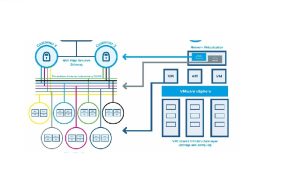
In the ever-evolving tech landscape, staying ahead is not merely an option, but a necessity. For tech enthusiasts, Platform as a Service (PaaS) is the ultimate playground in 2023. This comprehensive guide will delve into the intricacies of PaaS, providing you with the knowledge and insights needed to excel in this dynamic realm.
Unraveling PaaS – A Brief Overview
Let’s kick off our journey by understanding what Platform as a Service truly entails. PaaS is a cloud computing model that offers a robust platform for developers to build, deploy, and manage applications without worrying about the underlying infrastructure. It’s a game-changer, as it enables developers to focus on coding and innovation, while the service provider handles server management, scalability, and security.
PaaS Ecosystem – Beyond the Basics
PaaS is not just about simplifying application development. It is a thriving ecosystem with various components and services. This ecosystem includes development tools, database management systems, application hosting, and more. Within PaaS, you’ll find a wide array of choices to cater to your specific needs.
The Development Tools: Your Arsenal
The heart of PaaS lies in the development tools it offers. These tools, often referred to as Integrated Development Environments (IDEs), provide a cohesive environment for coding, testing, and deploying applications. Some popular options include Microsoft Azure DevOps, Google Cloud’s Cloud Tools, and AWS Elastic Beanstalk.
Database Management – A Critical Component
Efficient database management is crucial for any application’s success. PaaS platforms offer various database services, ensuring your data is stored securely and can be accessed effortlessly. Examples of PaaS-based database solutions include Google Cloud SQL, Azure Cosmos DB, and Amazon RDS.
Application Hosting – Where the Magic Happens
The ability to host applications seamlessly is the hallmark of PaaS. These platforms offer a wide range of hosting options, including serverless computing, containerization, and traditional web hosting. Technologies like AWS Lambda, Google App Engine, and Azure App Service exemplify this diverse landscape.
Key Benefits of Embracing PaaS
Now that you’ve had a glimpse of what PaaS encompasses, let’s dive into its benefits:
Speed and Efficiency: PaaS accelerates development and deployment, leading to faster time-to-market for your applications.
Cost-Efficiency: By eliminating the need for managing infrastructure, PaaS reduces operational costs.
Scalability: PaaS platforms offer seamless scalability, ensuring your applications can handle increased loads without hiccups.
Security: Most PaaS providers have robust security measures in place, giving you peace of mind.
Innovation: With the technical complexities handled, developers can focus on innovation and building remarkable applications.
Simplified Maintenance: PaaS takes the burden of maintenance and updates off your shoulders.
Global Reach: Access to data centers worldwide ensures your application’s global reach.
PaaS in Real-World Applications
Now that we’ve established the fundamentals, let’s explore how PaaS is making waves in various industries:
E-Commerce
E-commerce platforms leverage PaaS to handle surges in online shopping, ensuring seamless user experiences during peak seasons.
Healthcare
In the healthcare sector, PaaS plays a vital role in managing and securing electronic health records and telemedicine applications.
Finance
PaaS enables the rapid development and deployment of fintech solutions, contributing to the financial industry’s transformation.
Gaming
Game developers use PaaS for scalable server infrastructure, providing uninterrupted gaming experiences to users worldwide.
Final Words
In 2023, Platform as a Service is your tech playground. With its efficiency, scalability, and security, it empowers developers to craft remarkable applications. Embrace PaaS, stay ahead, and take your tech endeavors to new heights.
Commonly Asked Questions
Q1: What distinguishes PaaS from other cloud services?
PaaS focuses on providing a platform for application development, whereas Infrastructure as a Service (IaaS) offers raw computing resources, and Software as a Service (SaaS) provides complete applications.
Q2: Is PaaS suitable for small businesses?
Absolutely! PaaS is a cost-effective solution that caters to businesses of all sizes. Small businesses can benefit from its scalability and ease of use.
Q3: Can I use PaaS for mobile app development?
Certainly. Many PaaS platforms offer tools and services for developing mobile applications, making it a versatile choice.
Q4: How does PaaS enhance collaboration among development teams?
PaaS provides a centralized environment where development teams can collaborate efficiently, share code, and track changes.
Q5: Is PaaS secure for sensitive data?
PaaS providers implement robust security measures, but it’s essential to follow best practices and encryption protocols to safeguard sensitive data.
Advertisement







